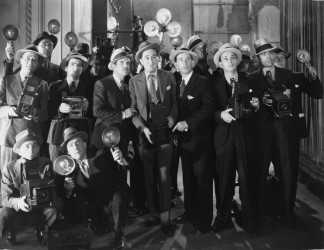“Aquaman”, produced by Warner Bros Pictures and directed by James Wan, took the world by storm this winter sea-son. Despite the poor reception of the movie by critics, and Aquaman not being as popular as DC characters such as Superman, Wonder Woman, and Batman, the film swam past movies like “Wonder Woman” and “Batman v Superman: Dawn of Justice.” It’s even gone as far as to score $1 billion at worldwide box offices. “Aquaman” is an original, flushed-out, cray-sea enjoyable film that combines amazing visuals, humor and lore in a thought out story.
Arthur Curry (Jason Momoa), the real name of Aquaman, is the child of a forbidden romance between lighthouse keeper Tom Curry (Temuera Morrison) and adrift Queen of Atlantis (Nicole Kidman). After saving the world in seperate film “Justice League”, Arthur retires to a life of fighting pirates and drinking. Yet his peaceful world shatters upon learning his younger brother King Orm (Patrick Wilson)’s plans to wage war against the “surface dwellers” for their crimes against the sea.
Aided by his former teacher Nuidis Vulko (Willem Dafoe) and Princess Mera (Amber Heard), Orm’s betrothed, Aquaman seeks to overthrow the throne to end this war, a war that has endangered the peaceful life of his father and the millions of people living on the surface. The plot does a wonderful job of bringing to light important issues in our very own lives, while at the same time portraying an impossible land. The story of war and redemption is brilliant yet simple, assisted by the elements of Arthur’s childhood and development.
Despite the film’s large array of characters,”Aquaman” does a remarkable job of introducing new characters to the audience. The film showed Aquaman’s relationship with his parents and teacher in flashbacks.
One flashback that truly stood out was when Vulko, adolescent Arthur’s tutor of sorts, revealed the many powers of having Atlantean blood to a preteen Arthur. The scene showcased the powers and the ensuing delight while giving the audience a little taste of the astounding visual effects used later in the film. It was refreshing to see a film explore the childhood and discovery of power of a hero, rather than using pre–established stories.
The movie dedicated a lot of time to Arthur’s time before he was began his crusade against villiany. The film really developed Aquaman, a relatively unknown hero, so that the audience could watch the hero grow and truly understand him as a character. The first scenes show Arthur’s sheer no nonsense and brutal methods of upholding justice.
Earlier on, the audience watches as Aquaman refuses to rescue the father of a criminal, leaving him to die and shirks the responsibilities of a stereotypical hero. Arthur drinks and swears while spending most of his days at the bar. In fact, Arthur refuses to even participate in fighting against the Atlanteans. While Aquaman may have displayed heroics in earlier films, he certainly does not change in the first parts of “Aquaman. It isn’t until the near death of his father that he embarks on a hero’s journey, a journey that ends with him maturing and becoming a better person.
“Aquaman” does an amazing job of starting and ending the marine marvel’s transition as a human without alluding to any other film. As a result, Aquaman can be watched without any other knowledge of the DC franchise because it begins and completes it’s own story independently.
Aquaman isn’t just a film about Aquaman; it also tells the story of Mera, and portrays her as a levelheaded and independent woman who recognizes and resists injustice, in the form of her to-be-husband King Orm. The film tackles the issue of arranged marriages and the dilemmas Mera faces and shows while showing the industry’s progression in female leads. Mera isn’t a sidekick, but instead the bringer of change in Atlantis. She has entertaining and great fighting scenes, including a very memorable one where she manipulates alcohol in a bar into spikes to kill the opposition, definitely something that stands out in a film packed to the brim with action.
Like Excalibur, Aquaman seeks to overthrow Orm by finding and using a mystical weapon, in this case the trident of the first king of Atlantis. In a series of trials, Arthur travels around the globe, following the clues left behind by said king. But, when he reaches the final part of the trial, the audience is introduced to a massive plot twist that really plays with your emotions. The plot twist was something that was hinted at enough for it to be feasible, but still an amazing moment.
The climax of the film ties intricately into the beginning of the film, playing off of the significance of Arthur’s childhood and parentage. Eventually, as Arthur recognizes his failure as a hero, he becomes more and more emboldened to do what is necessary: to stop the war between Atlantis and the surface. The story telling and flow of plot are extremely clean and clear; the audience knows when a new sequence of events have started, and when a seperate arc ends.
Aquaman has multiple themes, whether it’s the ethics of being a superhero or the clash between good and bad. But through and through, it’s made clear that the central theme to the movie is family. Arthur is driven by the loss of his mother and fondness of his father, and the main antagonist is his own brother. He exhibits frustration in the flashbacks at not knowing what happened to his mother and despair and fury when learning his mother was executed by the Atlanteans. Arthur’s fear of losing family drives him to protect himself and everyone else.
The movie communicates this message through different mediums of genres. While the film is certainly an action film, it displays James Wan’s expertise with horror films, the comedy of having a man who can swim and talk to fish as superpowers as the main character and the drama that comes with the obsession over the throne.
Finally, the movie has amazing visuals. Arthur’s first time into entering Atlantis fills not just him but the audience with awe and incredulity at the iridescent hues of otherworldly colors accenting the foreign infrastructure of a land below the sea. The details are sharp and vivid, and the contrast between the land and ocean being very distinct. Scenes under the water felt damp due to the overlay of shades of blue, while the land had a realistic saturation and familiarity.
But the final battle displayed the amazing visuals we come to expect from high budget films, especially from Warner Brothers and DC. Sea-ing as the film revolved around fantastical sea creatures and underwater cities, a lot of the film was done in CGI. Yet, the CGI is realistic and the creatures seem just as high quality as any other recent Hollywood blockbuster; the gills and fins of creatures are vivid and textured, and the lasers and gleam of weapons have the correct exposure and shine to be believable.
Ultimately, Aquaman is a film that I highly recommended. It is a film that leaves no loose ends, creating and finishing a hero effectively in just two hours. The journey of Aquaman and his comrades is certainly a treat, their stories are intriguing and satisfying, with the right touch of CGI and great storytelling. The plot is simple and easy to follow, with really well choreographed fight scenes. The cherry on top, though, is how Wan told a theme of family in different, yet all gripping, genres.









